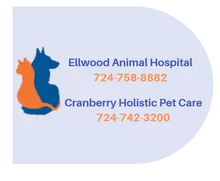With the arrival of Easter, we look forward to warmer weather and the opportunity to get outdoors more often. The pandemic and social distancing have created the need to be more vigilant about preventing pet health emergencies. We can all take advantage of our time at home by increasing our awareness of health concerns, taking stock of household dangers and putting preventive health care measures, for pets and family, in place.
The following is a list of warm weather dangers, and how you can help your pet avoid them. Should your pet be affected by any one of these, seek veterinary attention immediately:
- Lily Toxicity: All lilies, including Easter Lilies, are highly poisonous for cats. Ingestion of any part of a lily plant causes kidney failure in feline companions. Drinking the vase water in which cut lilies have been placed can also produce fatal results. If you have a cat, keep all true lilies out of the house. Calla lilies, Peruvian lilies and Peace lilies are not true lilies. These plants are safe alternatives for cat owners to keep indoors.
- Chocolate Toxicity: Keep all sweets away from pets. Chocolates contain theobromine which can cause mild symptoms in low doses, like diarrhea and hyperactive behavior, or more severe problems leading to death, with ingestion of more chocolate and dark or baking chocolates.
- Xylitol Toxicity: Sugar-free gum and candy containing the sweetener, xylitol, is highly toxic to pets. Fatality occurs with very small amounts. Check all food products, like peanut butter, toothpastes, gum and candy, for the presence of this artificial sweetener. Eliminate the chance of exposure by keeping them out of the house or somewhere pets cannot gain access.
- Bifenthrin Toxicity: Bifenthrin is a type of insecticide used in yards and around homes to treat for ants and a variety of other insects. Unfortunately, it is toxic to pets, which sometimes eat the granules or lick the spray residue. Pets will have tremors or seizures as a sign of toxicity. Avoid using this chemical to protect your pets. If your pet does ingest it, seek emergency care.
- Fertilizers, yard treatments, herbicide and cleaning agent toxicity: Many chemicals kept in and around the garage, shed or barn can contain toxic ingredients for pets, fish (if you have a pond, assure chemical runoff will not be a problem for fish), and even bees. Be sure to read ingredient lists prior to purchasing these treatments. Know the potential environmental and pet impact, before applying outdoor chemicals. Discard any stored chemicals, already on hand, which can produce fatal effects for animals. This advice also includes discarding products with known carcinogens, like glyphosates, which do not cause immediately fatal results, but affect pet and human health.
- Blue-green algae toxicity: Blue green algae ingestion is highly toxic to pets and mammals, including humans. Dogs are most commonly affected when swimming in lakes and ponds which have algal blooms of toxic varieties. Most blue-green algae, like the edible spirulina, are not toxic. Of the over 2000 species, 95 types are fatally toxic. Because the effects are so devastating, and pets can die with seizures and organ failure, it is best to keep pets out of ponds, lakes and other water with signage posted, and still, warm water. And if pets have been in suspect water, don’t wait for signs of illness to visit the veterinarian. Get immediate treatment.
- Hit by Car: Vehicle injuries and being hit by cars can be prevented by keeping dogs and cats leashed or in a fenced yard when outside. Feline fence systems, like Purr-Fect fence or an enclosed play yard can keep cats safe, while they get a chance to be outdoors.
- Bite Injuries: Confrontations with dogs and wildlife can be prevented by the same advice as above.
- Fipronil Toxicity: Fipronil is found in many flea and tick preventives. Dogs and cats can be exposed without toxicity at recommended doses, but rabbits will die if they have the chemical applied. Many rabbit owners will make the mistake of treating their bunnies with the flea treatment, thinking it is safe. Tremors, seizures and death follow. Never apply a flea treatment to a species which is not indicated on the label, and be particularly careful in rabbits, cats and exotic species with all flea treatments.
- Toxic Mushrooms: Springtime rains increase mushroom growth. Some mushrooms in the yard contain toxins and hallucinogens. If your pet is seen eating yard mushrooms, stop him, and take him and a sample of the mushroom to the vet. If you see your dog acting woozy, nauseated or trembling, after a trip outside, take a quick look around the yard on your way to getting him to the veterinarian. Be ready to report any possible toxin ingestion to aid your vet in a speedy diagnosis and appropriate treatment.
I hope these tips help you and all your loved ones stay safe and well this holiday and in the coming months.
